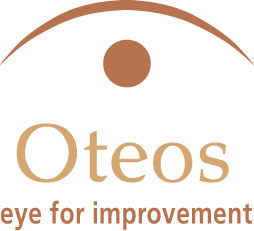Acknowledging our mistakes is a sign of strong character. It is a primary component of accountability and is essential for effective leadership. Accountability isn’t the same as responsibility, although the two terms are often interchanged. We all have responsibilities at work, the tasks that make up our job. Responsibility can be shared, divided up amongst team members. Accountability, however, belongs to only one person. It is what happens after an incident and how you respond and take ownership of the results.
Accountability is essential for building trust in the workplace. If staff are worried about getting thrown under the bus or are unsure of their leader’s support in the event of an incident, they are not going to exude creativity. They will work for the company but not with the energy and passion that they would if they know that mistakes won’t end their career with the organization. Obviously, I’m not talking about repeatedly making the same stupid mistake but rather the kind that happens on occasion.
Why Is It Important?
Despite the importance of owning our mistakes, and the fact that every human makes them, it becomes more evident that so many people in positions of power are not accountable themselves. How many of us have worked for a manager that never had our back? Or that took credit for success but was quick to blame when something happened? Everyone knows this scenario – the real question is, how are these individuals put in any position of influence?
There are so many reasons that businesses benefit from accountable leadership. Not only can accountable leaders quickly identify problems, but they can find solutions just as fast. Just like other characteristics of good leadership, the other members of the team will follow suit. Accountability will inspire accountability. It also breeds trust and loyalty, both of which increase productivity.
When Accountability is Lacking
Of course, you can’t discount the consequences of no accountability. When the blame game starts with management, it festers among the team. This will no doubt create division among the staff. There are those that will accept the blame, those that will fight back, and those that will become one of the brown-nosers to the boss in hopes of avoiding the blame. Either way, division of the team occurs. I have seen it happen to the best of them. Naturally, productivity declines, as does loyalty to the manager and the organization. Whether it’s the blame game or lack of leadership, employee engagement is sure to decrease.
Lack of accountability also affects the customer experience. Due to its profound effect on employee engagement, it will affect the way the employees treat customers. This will lead to first-time customers not returning, regular customers not returning, and those that do leave negative reviews. We all know that more people complain about a bad experience than shout out about the good ones.
How To Encourage It

Two approaches are often taken when someone shirks accountability. One is to ignore the problems, and the other is to remove the person from their team. Realistically, neither approach is ideal. Ignoring the problem will likely make it more significant or recurring, and you don’t want to terminate someone or shuffle them if they have the potential to be an asset to the team. First and foremost, lead by example. Again, accountability inspires accountability. Make sure that your staff has the tools and equipment needed to do their job efficiently and effectively. Ensure that there is a continuous feedback loop. Too often, feedback only happens when something goes wrong, but it’s essential to have feedback when things are going well.
Most importantly, provide them with an environment that makes it easy to own their mistakes. Working in a safe environment encourages creativity and productivity. We learn more from our mistakes than our successes, as it’s our mistakes that keep us growing.

Add a Comment